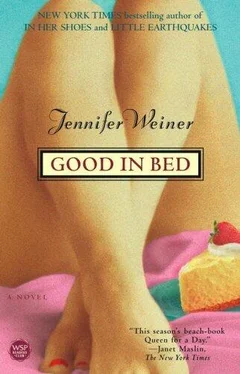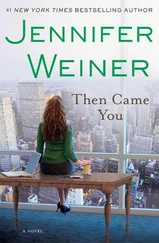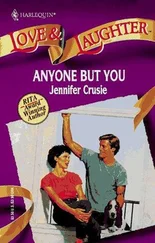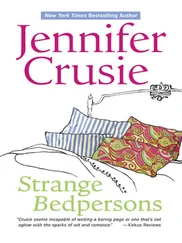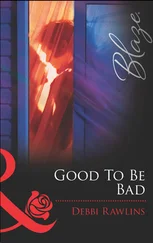“Wait until you see the baby’s room!” Lucy crowed.
The walls were painted Lemonade Stand yellow, just the way I’d done them upstairs, and I recognized the crib that Dr. K. had put together. But the rest of the furniture was new. I saw an ornate changing table, a dresser, a white wood rocking chair. “Antiques,” Tanya breathed, running one thick fingertip along the curved whitewashed wood that was tinged very faintly pink. There were framed pictures on the walls – a mermaid swimming in the ocean, a sailboat, elephants marching two by two. And in the corner was what looked like the world’s smallest branch of Toys “R” Us. There was every toy I’d ever seen, plus a few I hadn’t. A set of building blocks. Rattles. Balls. Toys that talked, or barked, or cried, when you squeezed them, or pulled their strings. The exact same rocking horse I’d admired in a shop in Santa Monica two months ago. Everything.
I sank slowly down into the yellow denim love seat, underneath the hanging mobile of delicate stars and clouds and crescent moons, next to a three-foot-high Paddington Bear.
“There’s more,” said Lucy.
“You won’t even believe it,” said my mother.
I wandered back to the bedroom. My plain metal bedframe had been replaced with a magnificent wrought-iron canopy bed. My pink sheets had been swapped for something gorgeous – rich stripes of white and gold, tiny pink flowers.
“That’s two-hundred-thread-count cotton,” Lucy boasted, ticking off the merits of my new linens, pointing out the pillow shams and dust ruffle, the hand-knotted carpet (yellow, with a border of pink roses) on the floor, opening the closet to show off yet more of the pinkish-whitewashed antique furniture – a nine-drawer dresser, a bedside table topped with a gorgeous spray of daffodils in a blue ginger jar.
“Open the blinds,” said Lucy.
I did. There was a new deck outside the bedroom window. There was a big clay pot of geraniums and petunias, benches and a picnic table, a gas grill the size of a Volkswagen Bug in the corner.
I sat down – collapsed, really – onto the bed. There was a tiny card on the pillow, the kind you’d get with a bouquet of flowers. I slid it open with my thumbnail.
“Welcome home,” it read on one side. “From your friends,” said the other.
My mother and Lucy and Tanya stood in a line, regarding me, waiting to hear my approval.
“Who…,” I started.“How…”
“Your friends,” said Lucy impatiently.
“Maxi?”
The three of them exchanged a sneaky look.
“Come on, you guys. It’s not like I’ve got other friends who could afford all this.”
“We couldn’t stop her!” Lucy said.
“Really, Cannie, that’s true,” said my mother. “She wasn’t taking no for an answer. She knows all of these contractors… she hired a decorator to find you all these things… there were people working in here, like, around the clock…”
“My neighbors must have loved that,” I said.
“Do you like it?” asked Lucy.
“It’s…” I lifted my hands, and let them sink into my lap. My heart was beating too fast, pushing pain into every part of my body that hurt. I thought of the word that I needed. “It’s amazing,” I finally said.
“So what do you want to do?” asked Lucy. “We could go to Dmitri’s for dinner…”
“There’s a documentary about lesbians of size at the Ritz,” rasped Tanya.
“Shopping?” asked my mother. “Maybe you want to stock up on groceries while we’re here to help you carry things.”
I got to my feet. “I think I’d like to go for a walk,” I said.
My mother and Lucy and Tanya looked at me curiously.
“A walk?” my mother repeated.
“Cannie,” my sister pointed out, “your foot’s still in a cast.”
“It’s a walking cast, isn’t it?” I snapped. “And I feel like walking.”
I got to my feet. I wanted to exult in this. I wanted to feel happy. I was surrounded by the people I loved; I had a beautiful place to live. But I felt like I was looking at my new apartment through a dirty mirror, like I was feeling the crisp cottons and plush carpets through thick rubber gloves. It was Joy – not having Joy. None of this would feel right until my baby came home, I thought, and I was suddenly so angry that my arms and legs felt weak with the force of it, and my fists and feet tingled with the desire to hit and kick. Bruce, I thought, Bruce and the goddamn fucking Pusher. This should be my triumph, goddammit, except how can I be happy with my baby still in the hospital, when Bruce and his new girlfriend were the ones who put her there?
“Fine,” said my mother uneasily. “So we’ll walk.”
“No,” I said. “By myself. I want to be by myself right now.”
They all looked puzzled, even worried, as they filed out the door.
“Call me,” said my mother. “Let me know when you’re ready for Nifkin to come back.”
“I will,” I lied. I wanted them out already, out of my house, my hair, my life. I felt like I was burning up, like I had to move or explode. I stared out the window until they’d all piled in the car and driven off. Then I pulled on a jogging bra, a ratty T-shirt, a pair of shorts, a single sneaker, and thumped out of the house and onto the hot sidewalks, determined not to think about my father, about Bruce, about my baby, about anything. I would just walk. And then, maybe, I’d be able to sleep again.
May drifted into June, and all of my days were built around Joy. I’d go to the hospital first thing in the morning, walking the thirty blocks to the Children’s Hospital of Philadelphia as the sun came up. Robed and masked and gloved, I’d sit beside her on a sterile rocking chair in the NICU, holding her tiny hand, brushing her lips with my fingertips, singing her the songs we’d danced to months before. Those were the only moments I didn’t feel the rage consuming me; the only times I could breathe.
And when I felt the anger coming back, when I’d feel my chest tightening and my hands wanting to hit something, I’d leave her. I’d go home to pace the floors and pump my breasts, to clean and scrub floors and counters that I’d cleaned and scrubbed the day before. And I’d take long, furious walks through the city, with my ankle in the increasingly filthy walking cast, charging through yellow lights and shooting evil glances at any car that dared inch toward the intersection.
I got used to the little voice in my head, the one from the airport, the one that had floated up to the ceiling and watched me rage at Bruce while mourning quietly that he wasn’t the one. I got used to the voice asking Why? every morning, when I laced up my sneakers and yanked a succession of nondescript shirts over my head… and asking Why? again at night, when I’d play my messages back – ten, fifteen messages from my mother, my sister, from Maxi, and Peter Krushelevansky, from all of my friends – -and then erase each one without ever calling back, until the day I started erasing them without even listening. You’re too sad, the voice would murmur, as I stomped up Walnut Street. Take it easy, said the voice, as I gulped scalding black coffee, cup after cup, for breakfast. Talk to someone, said the voice. Let them help. I ignored it. Who could help me now? What was there left for me but the streets and the hospital, my silent apartment, and my empty bed?
I let the voice mail keep taking my calls. I instructed the post office that I would be out of town for an indefinite period and to please hold my mail. I let my computer gather dust. I stopped checking my e-mail. And on one of my walks I dropped my pager into the Delaware River without missing a single step. The cast came off, and I started going on even longer walks – four hours, six hours, meandering loops through the city’s worst neighborhoods, past crack dealers, hookers of the male and female variety, dead pigeons in gutters, the burned-out skeletons of cars, without seeing any of it, and without being afraid. How could any of this hurt me, after what I’d already lost? When I ran into Samantha on the street, I told her I was too busy to hang out, shifting from foot to foot with my eyes on the horizon so I wouldn’t have to see her worried face. Getting things ready, I explained, waiting to be off again. The baby’s coming home soon.
Читать дальше
